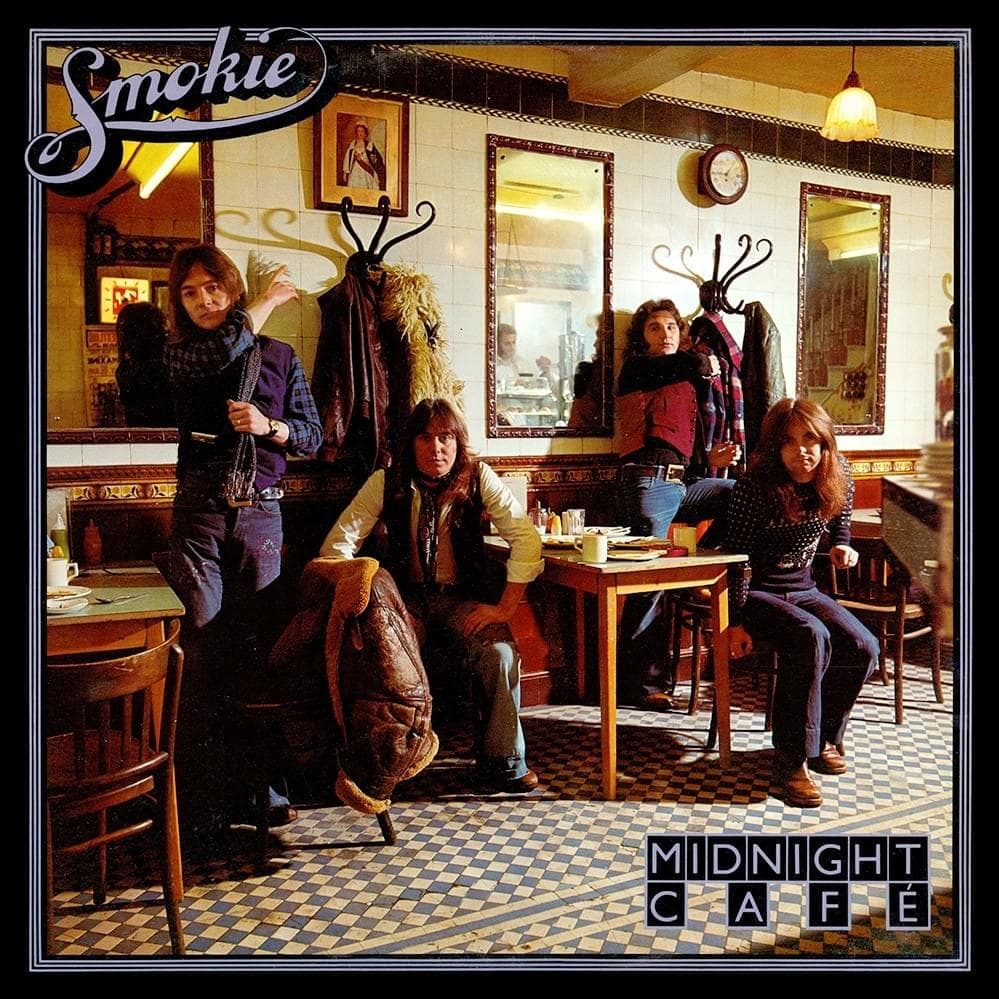
When Love’s Flame Fades: A Melancholy Plea for Connection
There are certain songs that, despite their gentle melodies, carry a profound weight of emotion, speaking to universal human experiences with a tender sincerity. Smokie’s “What Can I Do” is one such piece, a poignant rock ballad that reached deep into the hearts of listeners with its tale of fading love and desperate longing. Released in 1976 as part of their acclaimed album Midnight Café, “What Can I Do” became a significant hit, especially across Europe. While not a massive global chart-topper on the scale of some of their other tracks, it notably peaked at No. 3 on the UK Singles Chart, solidifying Smokie’s reputation as masters of melodic soft rock and earning them a dedicated following.
For those of us who came of age with the distinct sound of Smokie echoing from our radios, “What Can I Do” immediately brings to mind a particular era—the mid-1970s, a time when rock music was diversifying, and bands like Smokie offered a more polished, harmonically rich alternative to the raw energy of punk or the grandiosity of progressive rock. The story behind this particular song, like many of Smokie’s hits, is rooted in the collaborative genius of the legendary songwriting and production duo Nicky Chinn and Mike Chapman. They were adept at crafting catchy, emotionally resonant tunes that perfectly suited Chris Norman’s distinctive, gravelly vocals. While not a direct autobiographical account for the band members themselves, the song encapsulates a universal feeling that resonated deeply: the bewildering pain of watching a relationship slowly unravel, despite your best efforts.
The core meaning of “What Can I Do” is a heartfelt, almost pleading, exploration of helplessness in the face of a love that is slipping away. The lyrics paint a vivid picture of a man observing his partner growing distant, the warmth between them cooling, and the laughter turning to silence. He poses the agonizing question, “What can I do?” as he grapples with the inability to fix something that feels irreparably broken. It’s about the silent struggle, the confusion, and the desperate yearning to reclaim a lost connection. For older listeners, this song can stir memories of relationships that have weathered storms, or perhaps, those that didn’t. It speaks to the fear of losing someone you cherish, the heartache of unacknowledged pain, and the frustrating impotence of not knowing how to mend a fractured bond. It’s a reflection on those moments when words fail, and actions feel futile, leaving only a raw sense of despair.
The beauty of Smokie’s interpretation lies heavily in Chris Norman’s vocal delivery. His voice, often described as a distinctive blend of raw emotion and melodic control, lends itself perfectly to the song’s melancholic tone. There’s a genuine ache in his voice as he delivers lines like “Your laughter turns to silence, your eyes don’t shine for me,” making the listener feel every ounce of his character’s distress. The band’s signature harmonies, provided by Alan Silson, Terry Uttley, and Pete Spencer, create a lush, supportive backdrop that amplifies the emotional weight without overwhelming the core message. The arrangement builds subtly, from the tender opening guitar riffs to the swelling chorus, culminating in an almost anthem-like plea that stays with you long after the final notes fade.
“What Can I Do” stands as a testament to Smokie’s enduring appeal and their ability to craft songs that were both commercially successful and emotionally profound. It’s a track that captures a specific kind of heartache with an almost poetic grace, proving that sometimes, the most powerful expressions of love and loss are found in the simplest, most direct questions. For many of us, this song is more than just a memory of a bygone era; it’s a timeless echo of a feeling we’ve all encountered, a reminder of love’s fragility and the universal cry of a heart asking, “What more can I do?”